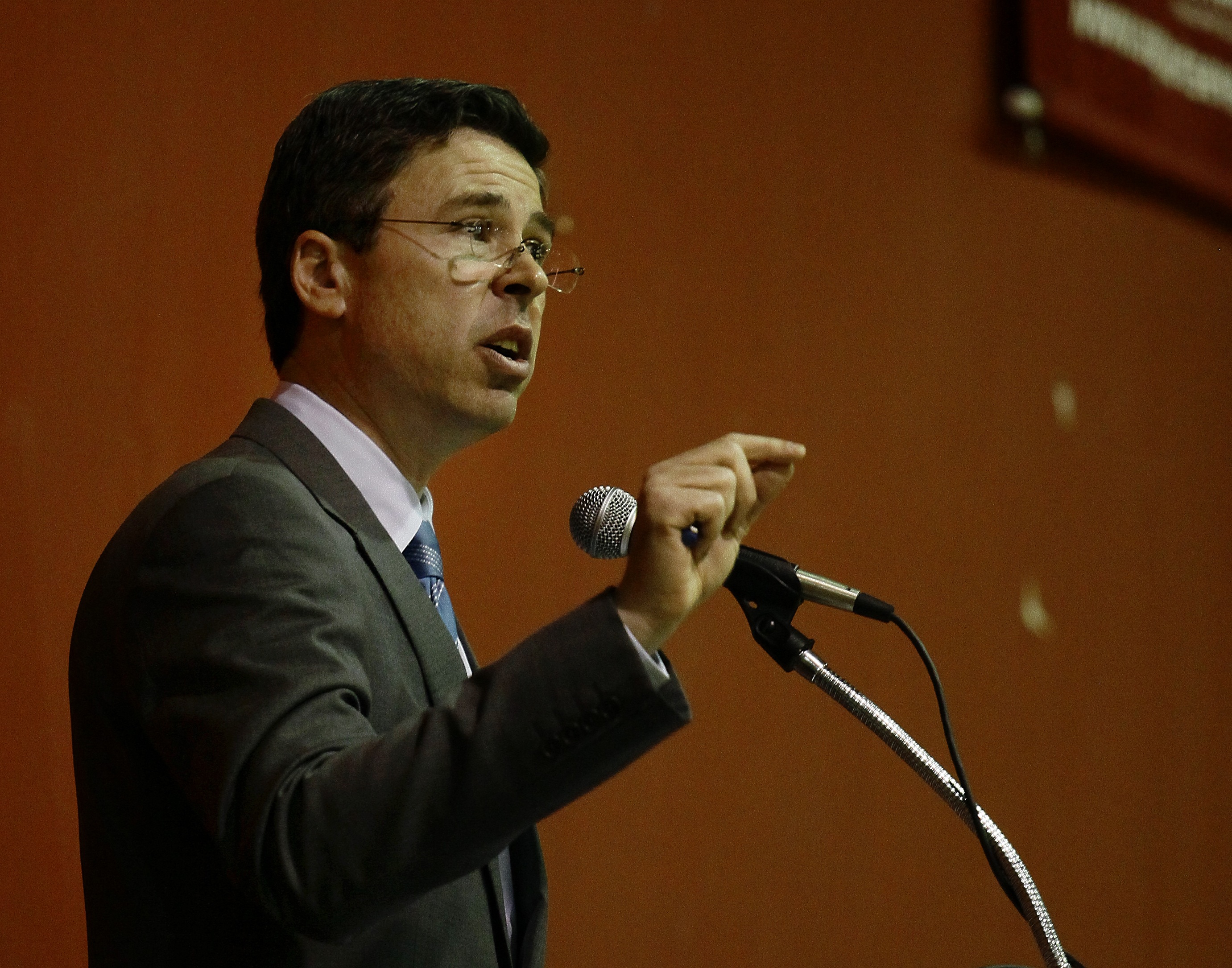Mayor-elect Andy Berke stepped up to another campaign pledge in his second community forum Thursday, promising that the city will be involved, in some way, in early childhood education. "City government will be reoriented for youth development," he said.
He didn't give details, but he wasn't there to present a plan. That will come some time after he takes office on April 15. Rather, Berke was there to listen to ideas and needs on youth development and job issues expressed by an encouraging crowd of nearly 500 Chattanooga residents.
Still, the theme of improving early education and addressing the core issue of reading skills in the city's underprivileged population was understandably the issue that resonated most, from early education to job creation and the city's economic competitiveness. Phil Acord, president and CEO of the Chambliss Center for Children and one of panelists, underscored one compelling finding gleaned from a conference last week of the Washington, D.C.-based National Association for the Education of Young Children. That finding: Nationally, just 8 percent of fourth-grade African-American males read at grade-level.
After all the local, state and national focus in recent years on early reading skills as the most important element in preparing children to learn and to succeed in school, and in life, this is a stunning revelation. There may well be significant variances in some school systems in specific locales, to be sure, but Acord told this page Friday that the association's research is generally accurate within several percentage points.
With Chattanooga the location for several of the schools taken over by the state due to students' low-achievement averages, there surely are many young students here who, because of well-documented socio-economic factors, would fall into the bracket of below-grade reading levels. Sadly, the consequences are equally well established: excessively high drop-out rates, difficulty finding jobs, and an abnormally high risk of gangs, crime and incarceration.
These trend-lines have been clear, here and elsewhere, for many years. Yet neither the county school system nor city or county government has ever committed to a long-term, comprehensive program to reverse the local trends, even as crime and the loss of old-line foundry and labor-intensive jobs have vanished, leaving pockets of poverty and social dysfunction to fester and expand.
In fact, city and county leaders have largely looked the other way. City efforts at jobs and outreach programs have tended to wax or wane on budget margins. County commissioners tend to act as if the only constituents they really need to represent live only outside the county's municipal boundaries.
What focus and programs Mayor-elect Berke can muster remain to be seen. But the very idea that a mayor is holding public forums, listening to residents, and about to assume office with specific focus on crime and public safety, early education and job development for all, is heartening.
Berke surely knows he has raised expectations, but he also has made the critical counter-point that the mayor's office and the programs he will unveil cannot, alone, achieve the results the community will want to see. He emphasizes that many ordinary citizens will have to become involved if the community is to achieve larger community goals for safety, education and economic progress.
In the broader view, of course, everyone who lives in Hamilton County has a stake in the city's success, and in Berke's goals of improving education and public safety in the city. If the city is to remain the county's economic engine, and the source of critical infrastructure and civic amenities that attract new businesses and investment, the success of Berke's agenda is crucial.
The County Commission isn't off the hook. It should finally own up to the need to raise the property tax rate for the long-neglected school system's operating budget. If commissioners need more convincing, they need only look at how badly ordinary, middle-class schools in the United States trail rising global educational achievement in other industrial nations' ordinary middle class schools.
Their first reference should be a pilot study by America Achieves, "Middle Class or Middle of the Pack?" reported on earlier this week by New York Times columnist Thomas Friedman. It's not just inner-city youth who need help, it's the rest of the schools in comfortable neighborhoods, as well.

